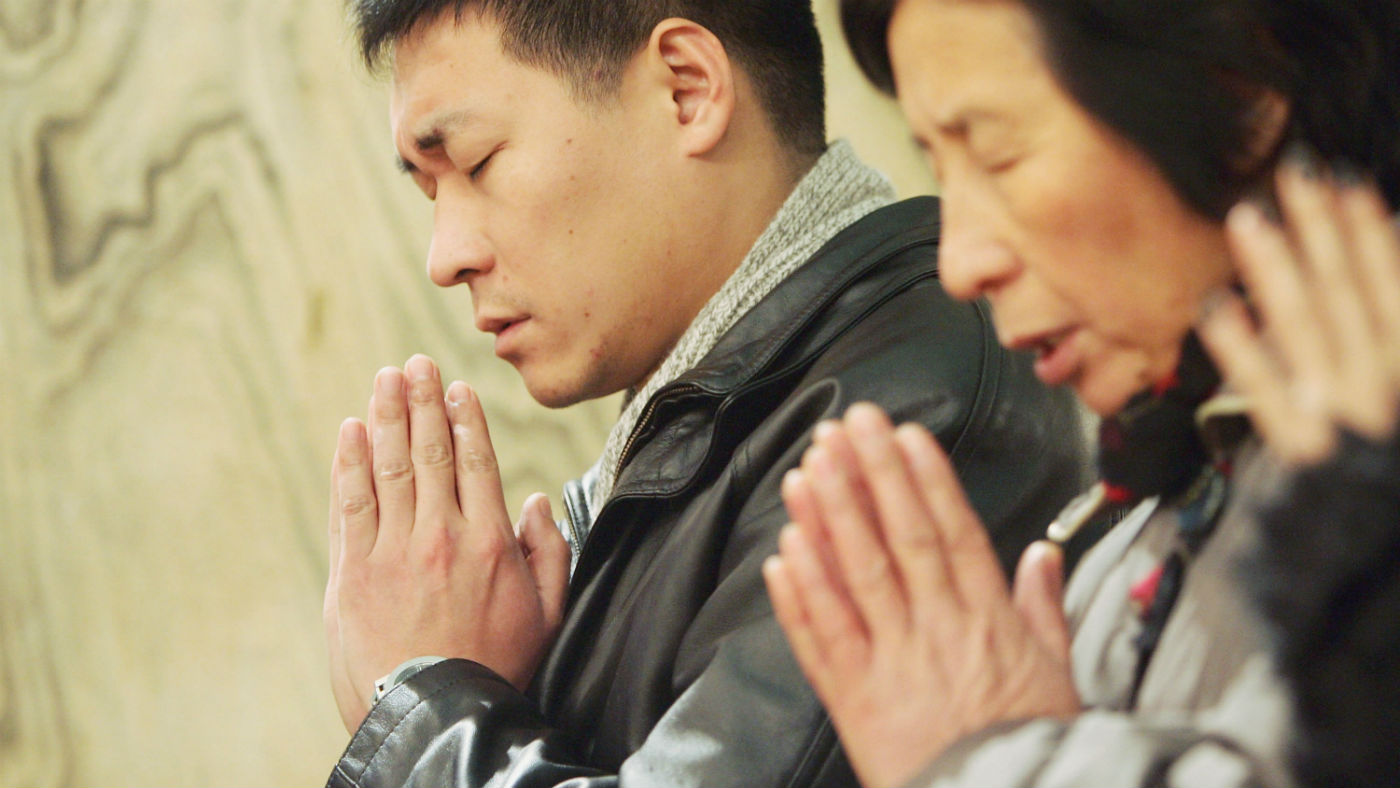Chinese Christians face new crackdown
Communist Party's 85 million members warned to drop beliefs or face punishment

A free daily email with the biggest news stories of the day – and the best features from TheWeek.com
You are now subscribed
Your newsletter sign-up was successful
China has launched a new campaign against religion, warning the estimated 85 million Communist Party members they will be punished if they continue to practise their beliefs.
Wang Zuoan, director of the state administration for religious affairs, said religion undermined communism and called faith a "red line for all members".
He added: "Party members should be firm Marxist atheists, obey party rules and stick to the party's faith... They are not allowed to seek value and belief in religion."
The Week
Escape your echo chamber. Get the facts behind the news, plus analysis from multiple perspectives.

Sign up for The Week's Free Newsletters
From our morning news briefing to a weekly Good News Newsletter, get the best of The Week delivered directly to your inbox.
From our morning news briefing to a weekly Good News Newsletter, get the best of The Week delivered directly to your inbox.
Mao Zedong, China's first communist leader, tried to destroy religion in the country and the Communist Party has long since promoted atheism while hounding the faithful.
However, says The Times, Wang's undefined threat of "punishment" seem "unduly severe for modern China" and appears to be part of "an increasingly draconian crackdown on religious freedom".
New laws have given the state the power to hire and fire church leaders, alter religious doctrine to make it more "Chinese" and force churchgoers to pledge loyalty to the party.
While Wang's comments are in line with longstanding official policy, "the party has by and large exhibited a cautious tolerance towards religion" in recent years, says the Times of India. The Economic Times, also based in India, says the move is likely to be highly "controversial" in China.
A free daily email with the biggest news stories of the day – and the best features from TheWeek.com
Chinese state media said it was designed to maintain party unity, while Wang said foreign forces were "infiltrating" China in the name of religion.
Beijing believes Christianity "poses a major threat" to its long-term stability, says the Economic Times, similar to the role Catholicism played in the downfall of communism in Eastern Europe.
The Chinese government has also been accused of unfairly persecuting religious minorities in the restive north-west Xinjiang province, home to many of the country's estimated 20 million Muslims.
Christianity and Buddhism are thought to be the fastest growing religion in China. Academics predict that by 2030, the country's Christian population will number more than 247 million, making it the largest in the world.
Wang's order was published in Qiushi Journal, the flagship magazine of the Communist Party, as the party prepares for its 19th Congress, a five-yearly event which takes place in October.President Xi Jinping is expected to be elected for another term and the next generation of China's leaders will be unveiled.
President Xi Jinping is expected to be elected for another term and the next generation of China's leaders will be unveiled at the meeting.